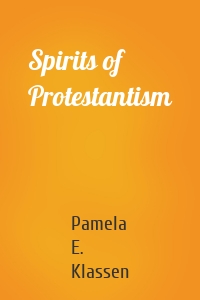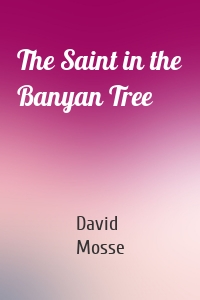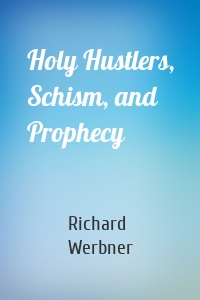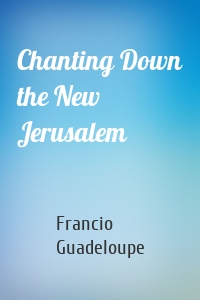Серия "The Anthropology of Christianity"
17 кн.Скачать лучшие книги серии The Anthropology of Christianity - автор William F. Hanks в формате fb2 или читать онлайн, бесплатно и без регистрации. Читаемые, полные версии книг, без сокращений - на сайте Knigism.online. Скачать книги полностью в количестве 17 шт.
City of God
In Guatemala City today, Christianity isn't just a belief system–it is a counterinsurgency. Amidst postwar efforts at democratization, multinational mega-churches have conquered street corners and kitchen tables, guiding the faithful to build a sanctified city brick by brick. Drawing on rich interviews and extensive fieldwork, Kevin Lewis O'Neill tracks the culture and politics of one such church, looking at how neo-Pentecostal Christian practices have become acts of citizenship in a...
| Автор | Kevin Lewis O'Neill |
Studying Global Pentecostalism
With its remarkable ability to adapt to many different cultures, Pentecostalism has become the world’s fastest growing religious movement. More than five hundred million adherents worldwide have reshaped Christianity itself. Yet some fundamental questions in the study of global Pentecostalism, and even in what we call «Pentecostalism,» remain largely unaddressed. Bringing together leading scholars in the social sciences, history, and theology, this unique volume explores these questions for this...
| Автор | Группа авторов |
A Diagram for Fire
What is the work that miracles do in American Charismatic Evangelicalism? How can miracles be unanticipated and yet worked for? And finally, what do miracles tell us about other kinds of Christianity and even the category of religion? <I>A Diagram for Fire</I> engages with these questions in a detailed sociocultural ethnographic study of the Vineyard, an American Evangelical movement that originated in Southern California. The Vineyard is known worldwide for its intense musical forms...
| Автор | Jon Bialecki |
Sensational Movies
Tracing the rise and development of the Ghanaian video film industry between 1985 and 2010, <I>Sensational Movies</I> examines video movies as seismographic devices recording a culture and society in turmoil. This book captures the dynamic process of popular filmmaking in Ghana as a new medium for the imagination and tracks the interlacing of the medium’s technological, economic, social, cultural, and religious aspects. Stepping into the void left by the defunct state film industry,...
| Автор | Birgit Meyer |
Moving by the Spirit
Drawing on two years of ethnographic research, Naomi Haynes explores Pentecostal Christianity in the kind of community where it often flourishes: a densely populated neighborhood in the heart of an extraction economy. On the Zambian Copperbelt, Pentecostal adherence embeds believers in relationships that help them to “move” and progress in life. These efforts give Copperbelt Pentecostalism its particular local character, shaping ritual practice, gender...
| Автор | Naomi Haynes |
Critical Christianity
In <I>Critical Christianity</I><I>,</I> Courtney Handman analyzes the complex and conflicting forms of sociality that Guhu-Samane Christians of rural Papua New Guinea privilege and celebrate as «the body of Christ.» Within Guhu-Samane churches, processes of denominational schism—long relegated to the secular study of politics or identity—are moments of critique through which Christians constitute themselves and their social worlds. Far from being a practice of...
| Автор | Courtney Handman |
Spirits of Protestantism
Spirits of Protestantism reveals how liberal Protestants went from being early-twentieth-century medical missionaries seeking to convert others through science and scripture, to becoming vocal critics of missionary arrogance who experimented with non-western healing modes such as Yoga and Reiki. Drawing on archival and ethnographic sources, Pamela E. Klassen shows how and why the very notion of healing within North America has been infused with a Protestant «supernatural liberalism.» In the...
| Автор | Pamela E. Klassen |
The Saint in the Banyan Tree
The Saint in the Banyan Tree is a nuanced and historically persuasive exploration of Christianity’s remarkable trajectory as a social and cultural force in southern India. Starting in the seventeenth century, when the religion was integrated into Tamil institutions of caste and popular religiosity, this study moves into the twentieth century, when Christianity became an unexpected source of radical transformation for the country’s ‘untouchables’ (dalits). Mosse shows how caste was central to...
| Автор | David Mosse |
Moral Ambition
In this evocative ethnography, Omri Elisha examines the hopes, frustrations, and activist strategies of American evangelical Christians as they engage socially with local communities. Focusing on two Tennessee megachurches, <i>Moral Ambition</i> reaches beyond political controversies over issues such as abortion, same-sex marriage, and public prayer to highlight the ways that evangelicals at the grassroots of the Christian Right promote faith-based causes intended to improve the...
| Автор | Omri Elisha |
Death in a Church of Life
This deeply insightful ethnography explores the healing power of caring and intimacy in a small, closely bonded Apostolic congregation during Botswana’s HIV/AIDS pandemic. <i>Death in a Church of Life</i> paints a vivid picture of how members of the Baitshepi Church make strenuous efforts to sustain loving relationships amid widespread illness and death. Over the course of long-term fieldwork, Frederick Klaits discovered Baitshepi’s distinctly maternal ethos and the «spiritual»...
| Автор | Frederick Klaits |
Christian Moderns
Across much of the postcolonial world, Christianity has often become inseparable from ideas and practices linking the concept of modernity to that of human emancipation. To explore these links, Webb Keane undertakes a rich ethnographic study of the century-long encounter, from the colonial Dutch East Indies to post-independence Indonesia, among Calvinist missionaries, their converts, and those who resist conversion. Keane's analysis of their struggles over such things as prayers, offerings,...
| Автор | Webb Keane |


















